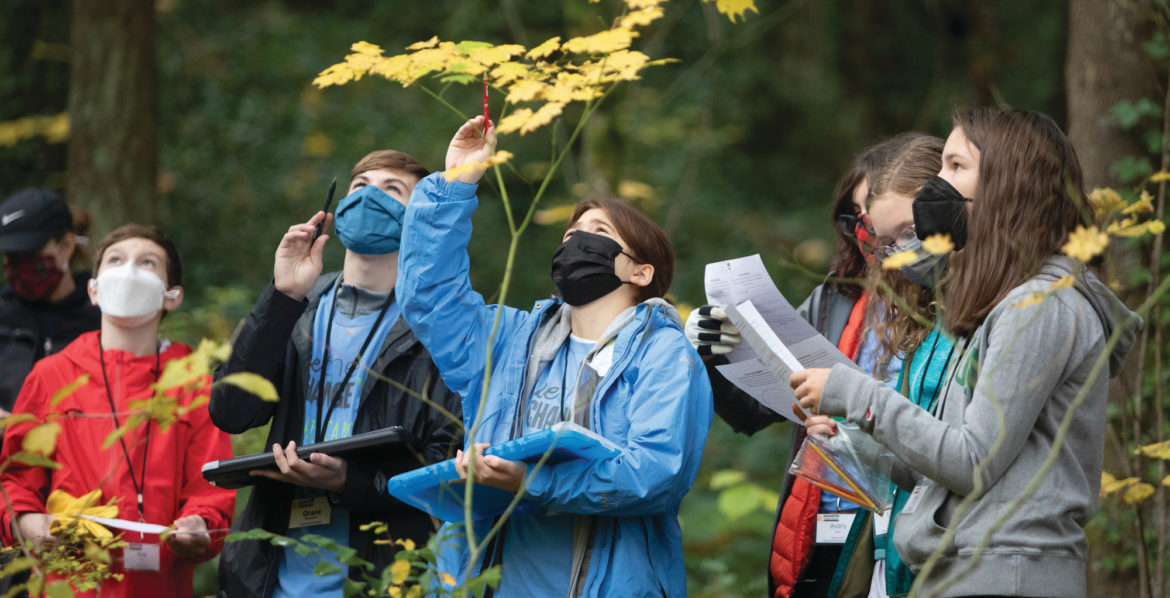ECO drives a new model of climate change education
written by Kevin Branaghin
The idea for nonprofit ECO, Ecology for Classrooms & Outdoors, hatched in 2005 when friends Sarah Woods and Bethany Shetterly were volunteering as environmental educators. They identified a gap in primary education and a growing need among students who were increasingly interested in environmental studies.
“They wanted to expand environmental education and do field trip programs to educate elementary youth in the Portland Metro area,’ said Monica Smiley, ECO director of development and communication. “Since then, they developed an organization and programs that serve elementary students with hands-on field trips and in-classroom educational lessons. At this point, ECO has served about 32,000 students.”
ECO developed and has always used a model of direct service, one that sends its own educators into classrooms to teach the curriculum and lead the service aspects of the program, too. The restrictions and regulations related to Covid, however, meant that schools were empty and field trips canceled. The model was broken.
The ECO team had a fundamental decision to make—change how they deliver education and service, or cease critical environmental education for Oregon students. “When you take a relational model and put it on the internet, in some cases, it doesn’t work so well,” said Smiley. “What has worked well is that there’s been this long-held dream for ECO of creating a curriculum that is a model for training the educator. So we’ve created a series of curriculum kits and educational tools that can be used by teachers themselves.”
Of all oddities, Oregon schools teach little, if any, courses on climate change, though it remains as the greatest existential threat to Americans and all people. It’s not required for students whose lives will be defined by it. California and Washington schools, however, have climate action as part of their core curriculum, she said. In this crisis came an opportunity for ECO.
During the pandemic, ECO made lemonade from lemons and created a slate of programs that will soon be used by teachers in Portland.
“Right now, there’s a critical momentum behind climate action and education,” Smiley said. “We were listening and we said, ‘We’re environmental educators. What can we do?’” ECO is in the final stages of creating a new curriculum that addresses the root causes and systems that contribute to greater levels of carbon dioxide emissions, and will put that in the hands of teachers. “Oregon students can understand the systems driving climate change and work to change those systems,” Smiley added.
Though Smiley has only been with ECO for less than a year, the veteran of nonprofits said it was the depth of ECO’s relationships with schools, teachers and students and the new climate action curriculum that inspires her.
ECO is wholly supported by local government grants, foundations and individual donors. To support ECO, go to www.ecolo-gyoutdoors.org.









